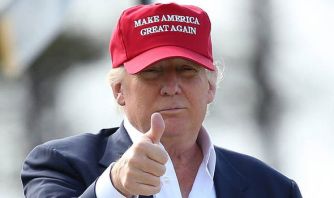 That's democracy in action!
That's democracy in action!
What are the 4 Reasons?
Despite its name, the South China Sea hardly touches the southern half of mainland China. This hotly contested body of water touches the Philippines, Vietnam, Malaysia, Indonesia, Brunei, Taiwan, and China—all of which claim right to the resources available. Because no country has come to an agreement over who has a right to the Sea, tensions are increasing as opportunity for diplomatic agreement in the region is decreasing.

Why does each country desire unrestricted access to the South China Sea? The Sea is a hotbed of desirable and profitable resources, not to mention has island chains which can act as strategic military bases (exactly how China is making use of its claim). China has become especially hostile as of late, making more aggressive exploits and military ventures. Here are 4 reasons for China’s increased interest:
- Fish: In 2015 alone, over 10 million tons of fish were caught in the territory of the South China Sea, equating to 12% of the fish caught in the world for that year. Increased competition for industrial fishing and production markets is a source for territorial conflict between China, Vietnam, Malaysia, Brunei, and the Philippines—each of which profits from catching millions of fish annually.
- Oil: Billions of barrels of oil exist under the surface of the South China Sea, namely off the coasts of Malaysia and Vietnam. Oil is the most contested resource in the region, and it is said that it will likely be the root cause of any future U.S./China conflict.
- Mineral Islands: Two chains of islands, called the Spratlys and the Paracels, are both mineral-rich and conveniently located for each country’s military to lay claim to.
- Military Bases and Construction of Artificial Islands: This brings us to our final point— China’s increased military involvement. Not only is China ramming its fishing boats into Vietnamese fishing boats, but it is also building artificial islands that only China can use for its own benefit. While every other country is arguing over right to islands and international waters, China is building its own, adding to already existing tension between other countries while boosting its power position in the region.
What are Trump and Clinton saying about the South China Sea?
As South China Sea geopolitical tension continues, the two front runners of the 2016 American presidential race are taking positions on how they will approach the conflict and China’s military presence.
Presumptive GOP candidate DonaldTrump claims that American politicians have let China “off the hook” regarding trade deals and action in the South China Sea. Much of American manufacturing and economic prosperity comes from business with China, yet Trump’s flagrant distrust of China aims to bring jobs back to the states. China is both an economic rival and a partner to the United States, so Trump’s combative remarks stir potential for increased rivalry on all fronts between the U.S. and China.

Former Secretary of State Hillary Clinton, on the other hand, has made statements about China both as First Lady and as Secretary of State. She has tweeted that Chinese President Xi Jinping’s comments on women’s rights are “shameless.” Regarding the South China Sea conflict, the Secretary proclaimed in 2011 that the U.S. would adopt a new “pivot” strategy, where the U.S. would pivotits diplomatic focus from the Middle East to Asia in order to more closely monitor China’s actions.

Neither of America’s potential future leaders have made promising statements about China and the South China Sea conflict, but the United States does have an obligation to its allies in Asia and the Pacific. As long as the Sea continues to provide its four resources, the conflict will continue to impact international diplomacy.
Sources:
Straits Times http://www.straitstimes.com/asia/south-china-sea-fish-wars
CNN http://www.cnn.com/2015/10/28/asia/china-south-china-sea-disputes-explainer/
Donald J. Trump https://www.donaldjtrump.com/positions/us-china-trade-reform
Washington Post https://www.washingtonpost.com/news/worldviews/wp/2015/10/12/hillary-clintons-long-and-complicated-relationship-with-china/

